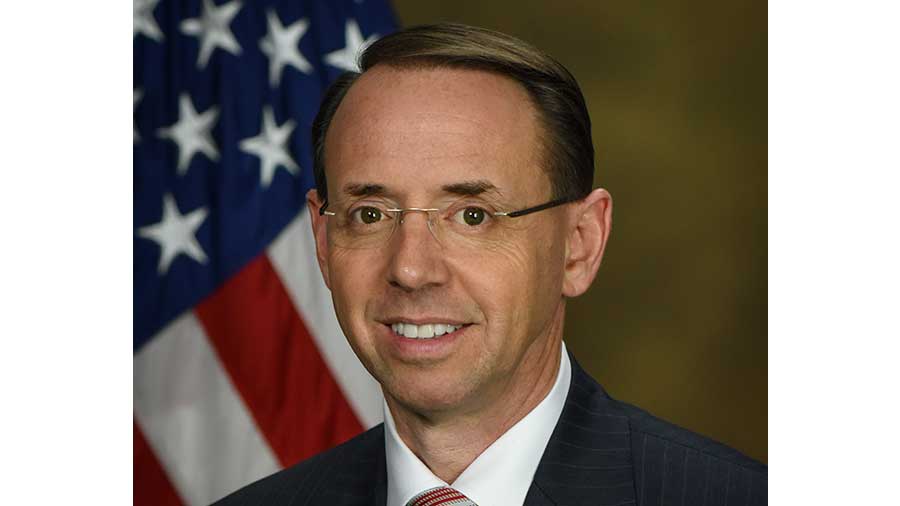Justice: Tech ‘Lock Boxes’ Are Big Problem

The smarter way to stay on top of broadcasting and cable industry. Sign up below
You are now subscribed
Your newsletter sign-up was successful
Deputy Attorney General Rod Rosenstein took it to tech companies Wednesday for locking phones and otherwise creating "black box" security for their devices that serves to hide criminal activity and thwart law enforcement. He said there was a way to protect data and allow for "fair and effective" law enforcement.
The privacy vs. security debate between Silicon Valley and D.C. is a long and contentious one, with the most high-profile recent flashpoint being the FBI's attempt in 2016 to force Apple to create a software backdoor so it could access information in the cell phone of one of the San Bernardino shooters.
Rosenstein, who was speaking at CNBC and the Aspen Institute's second annual Cambridge Cyber Summit in Boston, told his audience that technology was increasingly frustrating evidence collection needed to protect the public and solve crimes.
He cited default encryption by instant-messaging services now encrypting messages, "thereby blocking the police from reading those messages — even if an impartial judge authorizes their interception."
He did not cite the Apple issue directly, but did say that, for years "companies that make smartphones maintained the ability to access data stored on those phones, when ordered by a court to do so. But some of those companies made a conscious decision to engineer that critical capability away."
Rosenstein said he had nothing against encryption, calling it a fundamental element of data security.
"It is essential to the growth and flourishing of the digital economy," he said, adding: "We in law enforcement have no desire to undermine encryption."
The smarter way to stay on top of broadcasting and cable industry. Sign up below
But so-called warrant-proof encryption is a serious problem, he said, and framed it as a big picture item, in a gilt frame no less: "It threatens to destabilize the constitutional balance between privacy and security that has existed for over two centuries."
He said the ability for crime to be "totally impervious" to detection, even when law enforcement has a warrant in hand, is unprecedented, "but that is the world that technology companies are creating."
He gave tech companies credit for creating jobs and valuable, innovative products.
But there was another but: "[I]n a democratic society, the decision to reset the constitutional balance should involve review by citizens and their elected representatives. We should have a candid public debate about the pros and cons of allowing companies to create lock boxes that cannot be opened by police and judges."
Rosenstein said security is not binary, all or nothing. "We can have managed security that permits fair and effective enforcement of laws rather than absolute, black box security that conceals criminal activity."
Contributing editor John Eggerton has been an editor and/or writer on media regulation, legislation and policy for over four decades, including covering the FCC, FTC, Congress, the major media trade associations, and the federal courts. In addition to Multichannel News and Broadcasting + Cable, his work has appeared in Radio World, TV Technology, TV Fax, This Week in Consumer Electronics, Variety and the Encyclopedia Britannica.

